Welcome and thank you for reading CeLCAR’s inaugural semi-annual newsletter: The Steppe.
|
|
This newsletter details the activities, projects, and goings-on at our center and in Central Asian studies programs across the globe. This first issue covers the activities from the Spring 2013 and Summer 2013 academic semesters. Keep an eye out of for Issue 02 coming in Spring 2014! |
CeLCAR's Presence at Indiana University's Summer Language Workshop |
|
Indiana University boasts one of the world's top summer language institutes featuring many less commonly taught languages from around the world. These are languages that most Americans have never even heard of, and most are not taught at any other university in the United States.
Every summer, students from around the country come to IU to participate in the Summer Workshop in Slavic, East European and Central Asian Languages (SWSEEL). Using language materials developed at CeLCAR, students studying Central Asian languages are often are able to achieve high levels of proficiency in a surprisingly short amount of time.
For example, upon the completion of the Intermediate Dari course, many students perform at a proficiency level of 2 or 2+ according to the ILR scare (Interagency Language Roundtable). Students gain these high levels of proficiency through a combination of solid language learning materials (such as CeLCAR’s textbooks and workbooks), authentic classroom activities (such as role-plays, listening to local Central Asian news online, and chatting with native speakers via Skype), workshop sponsored extracurricular activities (such as weekly coffee hour chats with native speakers), and top-notch language instructors.
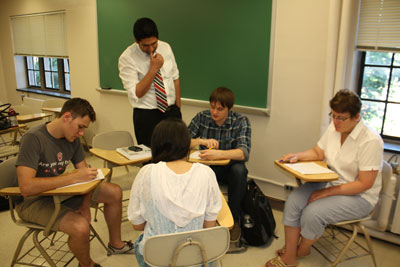
Incorporating lots of authentic and communicative activities into the curriculum not only engages the students in a fun way and accesses their different learning styles, but it also give students exposure to various dialects and important cultural customs. SWSEEL’s 2013 Introductory Dari instructor Homaira Azim reports, “Many words in Dari have spoken and written forms that vary dramatically. We start teaching about these differences very early, so that the students begin to understand these basic distinctions. It helps that students begin writing in Dari script right away.” And Rahman Arman, an Intermediate Dari instructor for SWSEEL and a Dari materials developer for CeLCAR, described a mealtime role-play, where a student acting as the host encourages his dinner guests (his classmates) to eat more, emphasizing a cultural norm important in Afghanistan and many other Central Asia countries.
Furthermore, Gulnisa Nazarova, Intermediate Uyghur instructor and Uyghur materials developer, cites that in addition to CeLCAR’s published Uyghur language materials, SWSEEL students can find lots of online language learning resources on CeLCAR’s website.
To learn more about SWSEEL, visit their website at http://www.indiana.edu/~swseel/. |
CeLCAR’s Presence at Conferences
This section summarizes CeLCAR’s presence at professional conferences locally and around the world.
|
|
An essential part of CeLCAR’s professional development is to attend language and linguistic conferences for networking with colleagues, learning about new research and innovative methods in language teaching, and presenting our work and developments in the field. This past Spring and Summer semesters, CeLCAR faculty attended various linguistic, language education, and technology conferences. The following are some of the highlights.
In April 2013, CeLCAR Director Dr. Öner Özçelik presented at the Generative Linguistics in the Old World (GLOW) 36 conference in Lund, Sweden. His talk “Selectivity in L3 Transfer: Effects of Typological and Linguistic Similarity in L3 Turkish of Uzbek-Russian Bilinguals” described his research findings on experiments testing truth-value judgments of ambiguous sentences as judged by adult Uzbek-Russian bilingual learners of Turkish. In his research, he was specifically examining if the speakers would transfer the structures from Uzbek (a language more structurally similar to Turkish) or Russian (more typologically like English).
In April 2013, Dr. Özçelik also presented at the Conference on Generative Approaches to Second Language Acquisition (GASLA) in Gainesville, FL. His talk “L2 Acquisition of Stress: The Case of Turkish” described his research findings on experiments testing his hypothesis on the L2 acquisition of stress/prominence in a footless language (Turkish) when the L1 is footed (English) or unfooted (French).
Also in April 2013, CeLCAR’s Technology Specialist Sukhrob Karimov attended the National Council of Less Commonly Taught Languages (NCOLCTL) conference in Chicago, IL. His presentation entitled “Technology in Teaching and Evaluating Language Skills” focused on the development of supplementary language teaching tools for mobile devices, including smartphones and tablet devices. In addition to presenting, Karimov also represented CeLCAR in the exhibitor’s hall showcasing our informational and educational materials.
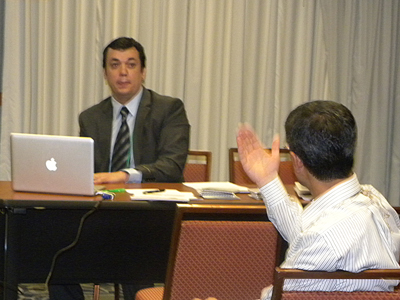
Then in June 2013, Karimov also presented at the mLearning DemoFest in San Jose, CA. His presentation entitled “Developing Mobile Apps for Language Instruction” highlighted the role of mobile technologies in language education. Karimov presented CeLCAR’s approach to developing personalized, interactive, and engaging applications to supplement language instruction, specifically the role it plays in blended and flipped classrooms.
Finally in September 2013, Dr. Özçelik presented more of his research on the L2 acquisition of stress and prominence in his talk “L2 Acquisition of Word Stress: Towards a Prosodic Acquisition Path” at the Generative Approaches to Language Acquisition (GALA) conference in Oldenberg, Germany.
|
Pedagogy Point: This Issue’s Q&A
|
|
Q: I always hear about using authentic text in language teaching, but I’m afraid age appropriate authentic texts are too advanced for my beginning adult learners. What is the best way to use authentic texts in my language teaching materials?
|
|
A: CeLCAR’s materials subscribe to the communicative approach to language teaching, also known as communicative language teaching (CLT), and one of the five features of CLT is using authentic texts. Currently there exist two schools of thought for incorporating authentic texts into the curriculum. First, use authentic materials, but modify them as necessary to make them attainable for your learners. For example, you can modify the text by chunking the larger texts into smaller more manageable pieces. Or you can add pre-reading/pre-listening activities or even glossaries to help supplement the text. The second school of thought says to use unmodified authentic materials, but vary the tasks and activities to differentiate for learner levels. Here at CeLCAR, we do not advocate one school of thought over the other. Our developers use a combination of both of these methods for developing our language learning materials.
|
|
|
|
Grants
Summary of CeLCAR’s most recently awarded grants.
|
|
Because CeLCAR is a non-profit, grant funded Language Resource Center, we depend on funding from outside sources to keep our operations going and continue developing new projects. Our three primary sources of funding are the US Department of Education, Indiana University’s College of Arts and Sciences, and the National Security Education Program. In addition, we regularly apply for other sources of funding to supplement our main funding sources.
In December 2012, CeLCAR’s Director Dr. Öner Özçelik was awarded a $5,000 Innovative Workshops grant from the Mellon Innovating International Research and Teaching (MIIRT) program to develop an Intensive Workshop on Distance Teaching and Learning for Less Commonly Taught and Critical Languages.
Additionally, in April 2013, Dr. Özçelik applied for and received a conference grant from Indiana University’s College Arts & Humanities Institute. The $3,000 awarded will be used to fund the travel and accommodation costs for guest speakers at the first annual Conference on Central Asian Language and Linguistics (ConCALL) to be established by CeLCAR in the 2013-2014 school year.
|
Upcoming Events
|
|
• Turkish Alphabet App
As part of our plan to offer interactive mobile learning apps in all of the high priority languages, CeLCAR is currently developing a Turkish Alphabet app to join our Dari, Pashto, and Uyghur apps.
• ACTFL’s 2013 Annual Convention and World Language Expo
The CeLCAR director, along with two staff members will travel to Orlando, FL to exhibit our materials, network with other LRCs and language professionals, and learn more about new research and teaching methods in the conference presentations and workshops.
• Kazakh and Turkmen Elementary Textbooks
Keep your eyes peeled in the coming months as we complete three new language textbooks: Elementary Kazakh, Elementary Turkmen, and Intermediate Uzbek. All three of these textbooks have been piloted in the draft forms and are quickly working their way toward completion and publication.
• Uyghur and Dari Grammar Reference Books
In addition to our instructional materials, CeLCAR is currently developing a new series of Grammar Reference books (beginning with Uyghur and Dari) to join our already published Tajiki Grammar Reference Handbook. Focusing on the grammar and syntax of Central Asia languages, these books will be valuable resources for language learners and linguists alike. |
|
|
Director's Note
|
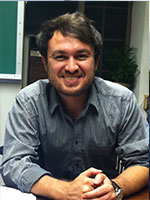 Dr. Öner Özçelik
Dr. Öner Özçelik
At present, CeLCAR’s major activity is developing language teaching and learning materials. CeLCAR has already developed textbooks for Introductory Pashto, Tajiki, Uzbek, and Uyghur. Having gone through an intensive peer review process by independent experts in the field of second language teaching, these have already been published by Georgetown University Press. We are currently in the process of developing materials for Introductory Dari, Kazakh and Turkmen, as well as Intermediate and Advanced Dari, Pashto, Uyghur, and Uzbek, many of which are currently available in draft status from CeLCAR, and some have already been submitted to leading publishing houses and are waiting for peer review. Our multimedia materials, as well as our smart phone apps, provide learners of these languages additional authentic input in the target language.
CeLCAR's foreign language teaching materials incorporate the latest innovations in foreign language teaching, and are prepared with the input of various second language acquisition and language pedagogy experts, as well as linguists. The way new information is presented and the tasks and activities used in the textbooks to consolidate this information are all in line with the findings of latest research in second language acquisition, linguistics and language pedagogy. Our textbooks provide learners with activities that are aimed at helping them perform tasks and functions that native speakers of the target language perform in their appropriate cultural context. The grammar and the vocabulary covered in the textbooks are also chosen carefully to help learners perform these tasks and functions at their respective levels of proficiency.
In addition to preparing language teaching materials, CeLCAR has recently started to spearhead efforts on campus on the teaching of less commonly taught languages in general, as well as research on the acquisition of these languages, by means of a variety of new activities, such as organizing conferences and workshops on less commonly taught languages or on the languages of Central Asia. To this aim, we have recently been successful in receiving a number of grants, as well as presenting several papers in highly selective linguistics and language acquisition conferences.
|
|
K-12 Outreach
|
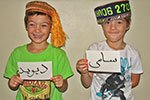
On Wednesday April 24, 2013, CeLCAR staff members Amber Kennedy Kent, Froozan Safi, and Niko Kontovas visited Mrs. McPheely’s kindergarten class at Arlington Heights Elementary in Bloomington, Indiana to test pilot our Central Asian Studies Made Easy K-12 curriculum.
The curriculum is split into five parts: Show, Tell, Touch, Teach, and Do and focuses on introducing children to the history, geography, culture, and language of Central Asia in an age and grade appropriate manner as aligned with state teaching standards.
In the coming future, we hope to continue developing materials that align with each of the fifty states’ teaching standards. The eventual goal is to publish a database of free online teaching templates and supplementary teaching tools (videos, pictures, audio recordings) for teachers to incorporate into their K-12 classrooms.
|
|
Uyghur Proficiency Test
|
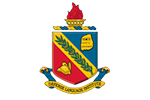
In January 2012, CeLCAR’s Uyghur materials developer Gulnisa Nazarova began assisting the Defense Language Institute in Monterey, California with their development of a Uyghur Defense Language Proficiency Test (DLPT5). Over the past fifteen months, Nazarova worked both from a distance in Bloomington, as well as traveling to Monterey several times, to provide cultural insights, explanations of language usage, and editing of reading and listening comprehension items to aid in the developing the test.
|
|
UYGHUR Alphabet App
|
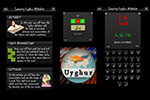
This past year, CeLCAR’s IT Specialist, Sukhrob Karimov, and Uyghur materials developer, Kurban Niyaz, collaborated to develop the Uyghur Alphabet App. This app is designed to teach students the shapes and sounds of Uyghur letters using familiar shapes and sounds in English. |
|
Informational Pamphlets
|

If you are interested in learning more about a particular Central Asian language, feel free to browse our growing database of Informational Language Pamphlets. In addition to the ten high priority languages for which we create learning materials, we are also in the final process of adding more languages spoken in Central Asia, starting with Turkish, Bashkir, Chuvash, Balochi, Kurmanji, Sorani, Gujarati, Punjabi, and Urdu.
|
|
Mission Statement
|
|
CeLCAR is dedicated to promoting the teaching and learning of the languages and cultures of Central Asia through the development of language learning materials (textbooks, workbooks, and multimedia resources), teacher training, distance language courses, and intensive language summer institutes. The less commonly taught languages currently being focused on at CeLCAR are Dari, Kazakh, Kyrgyz, Mongolian, Pashto, Tajiki, Turkmen, Uyghur, and Uzbek.
|
|
Download printable version of newsletter.
|

|
|


